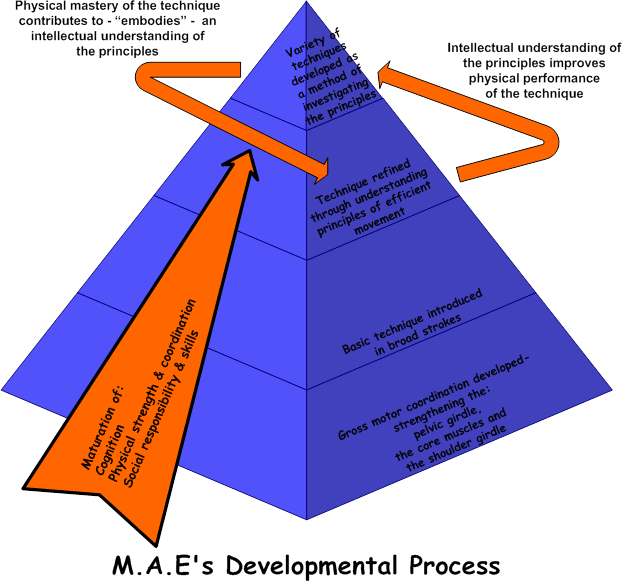|
|
|
Foundation Stage Life Orientation Learning Area (South Africa)
The programme was developed over a ten year period with the advice and assistance of a child psychologist, occupational therapists and experienced teachers. Children find the MAE programme very enjoyable and have shown remarkable physical and emotional growth. The system has been successfully deployed in private schools in London and has an enthusiastic following amongst educators, parents and children.
The Life Orientation Learning Area of the Revised National Curriculum Standards (R.N.C.S) for the Foundation Stage comprises of:
The M.A.E system is described within this framework.
1. Health Promotion
Exercises are demanding and often require close physical contact between learners. This naturally leads to class discussions around personal hygiene and communicable illnesses. We have developed sensitive strategies which
M.A.E’s exercises develop an awareness of the position of one's body (proprioception) and this, together with our emphasis on safety in the training environment promotes safety in the wider environment
In terms of dealing with abuse, every class includes a most enjoyable exercise which directly and strongly encourages children to be verbally assertive in taking responsibility for their physical integrity.
2. Social Development
The MAE system, in line with Kano’s ideals, gives preference to cooperation over competition. In learning and practising techniques the cooperation of both partners is necessary - students quickly discover that competitive and non cooperative attitudes are counter productive and not appreciated by their peers; with sensitive guidance and patience these attitudes tend to adjust.
Many exercises require rigorous close physical work and young learners r
The MAE system is based on feudal Japan’s chivalric code and this aspect is another subject of class discussions through which we encourage value driven thinking and give high priority to kindness, and consideration. Further, the nature of the close contact exercises provides opportunities to teach conflict resolution techniques; these have proved to be very successful in encouraging learners to contain or express their frustration as is appropriate for the circumstances.
3. Personal Development
4. Physical DevelopmentThe M.A.E programme certainly encourages learners to develop “… an awareness of the body and
ConclusionThe M.A.E programme, as required by the R.N.C.S “…empower[s] learners to use their talents to achieve their full physical, intellectual, personal, emotional and social potential.” Even at this early stage, the programme lays the foundation for learners to “… practise life skills that will assist them to respond to challenges and to play an active and responsible role … in society.”
|




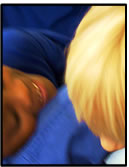 The Martial Art Education (MAE) programme is based on Jujitsu (the forerunner of Jud
The Martial Art Education (MAE) programme is based on Jujitsu (the forerunner of Jud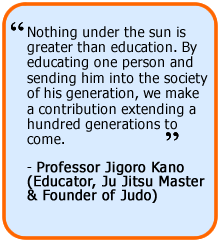 o) and Fanchento, it enhances physical, social and emotional development in children between 5 and 8 years of age.
o) and Fanchento, it enhances physical, social and emotional development in children between 5 and 8 years of age. 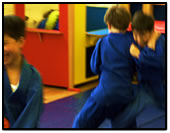 The M.A.E system contributes to this learning outcome in the following ways:
The M.A.E system contributes to this learning outcome in the following ways: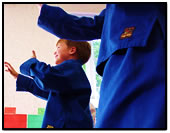 avoid students ever feeling chastised or belittled when addressing difficult issues.
avoid students ever feeling chastised or belittled when addressing difficult issues.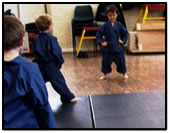 The Japanese Jujitsu Master who founded Judo, Jigoro Kano, was by profession an educator. Steeped in the classical moral code of traditional martial arts, Kano believed inculcating a sense of social responsibility in students was essential. Kano was responsible for J
The Japanese Jujitsu Master who founded Judo, Jigoro Kano, was by profession an educator. Steeped in the classical moral code of traditional martial arts, Kano believed inculcating a sense of social responsibility in students was essential. Kano was responsible for J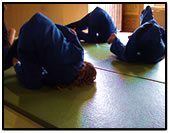 udo being incorporated into the Japanese schooling system at a time when, like South Africa, the Japanese nation was going through a period of tectonic social and political change.
udo being incorporated into the Japanese schooling system at a time when, like South Africa, the Japanese nation was going through a period of tectonic social and political change. 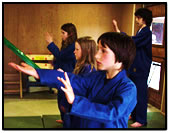 espond to others as “bodies”; all colour, gender and class issues immediately go out the window as children engage with one another in natural and enthusiastic “play”. In this regard the system has had remarkable success in integrating new students into schools, and the philosophy of inclusion is strongly manifested.
espond to others as “bodies”; all colour, gender and class issues immediately go out the window as children engage with one another in natural and enthusiastic “play”. In this regard the system has had remarkable success in integrating new students into schools, and the philosophy of inclusion is strongly manifested. 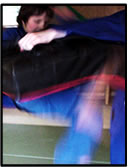
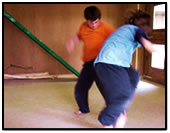 The M.A.E programme is thorough and progressive and this ensures all learners, regardless of their innate abilities, develop skills that they can be justifiably proud of. In addition, encouragement and enthusiasm is central to our teaching methodology and, these two factors together, effectively develop a sense of self worth, self-empowerment and emotional maturity.
The M.A.E programme is thorough and progressive and this ensures all learners, regardless of their innate abilities, develop skills that they can be justifiably proud of. In addition, encouragement and enthusiasm is central to our teaching methodology and, these two factors together, effectively develop a sense of self worth, self-empowerment and emotional maturity.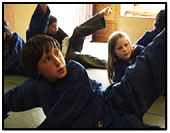 how to move in challenging, exploratory and problem-solving ways.”
how to move in challenging, exploratory and problem-solving ways.”